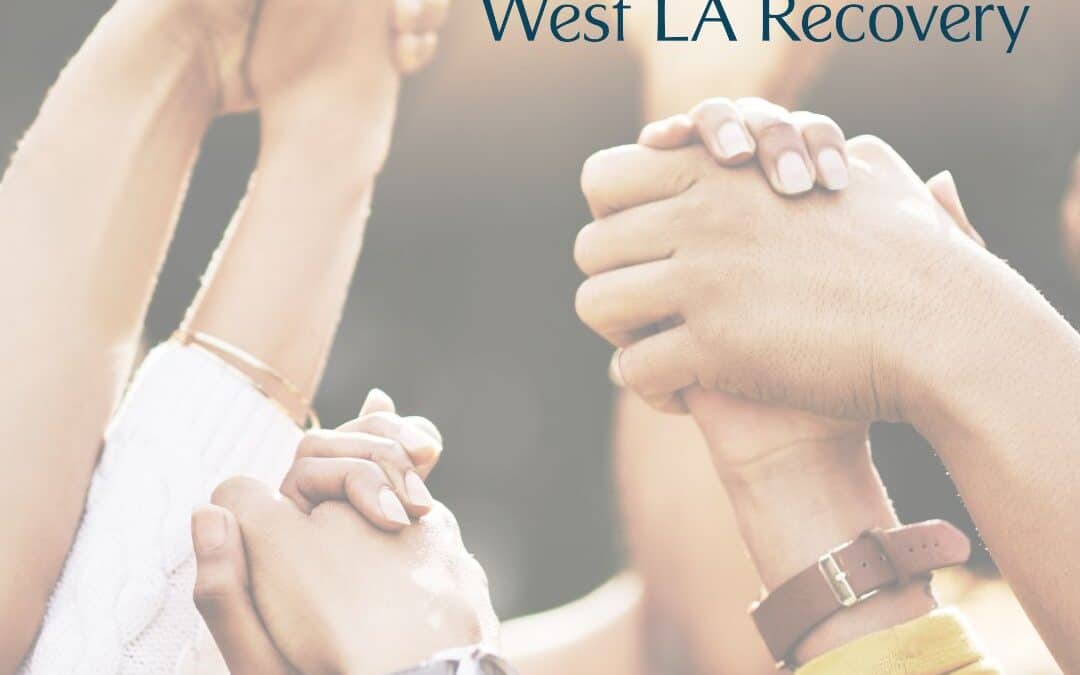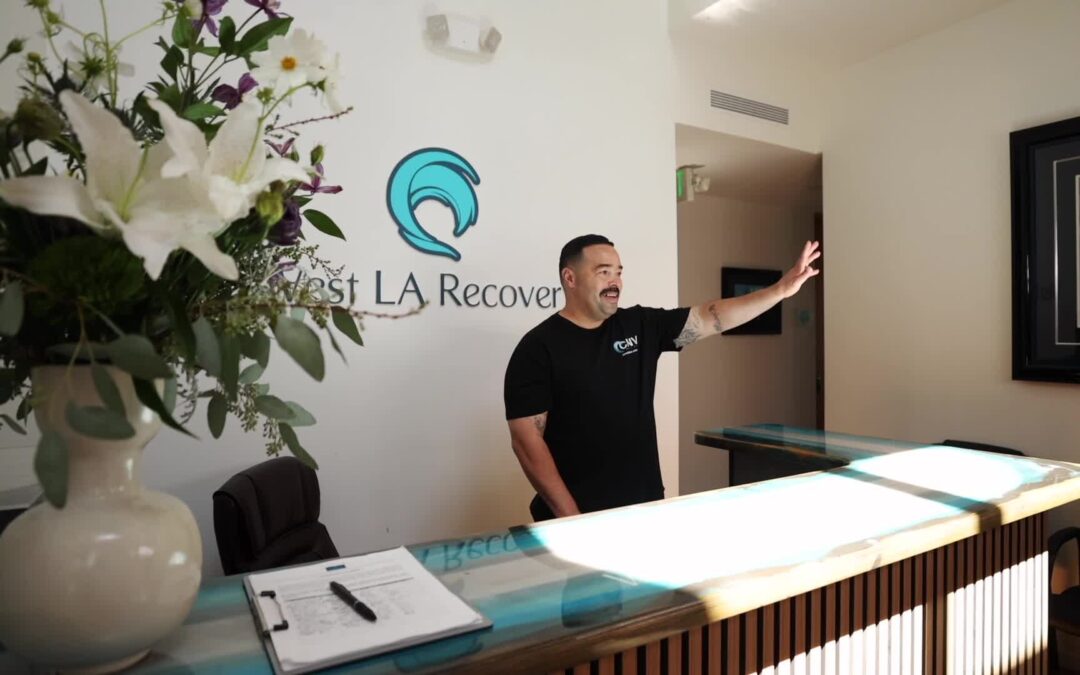Access to a Supportive Sober Community
Walking into your first AA meeting can feel intimidating, but you’ll quickly discover a welcoming space where judgment stays at the door. Each meeting brings together people from diverse backgrounds united by a common goal: maintaining sobriety.
The power of peer support in AA meetings creates a unique dynamic where shared experiences become stepping stones to recovery. You’ll hear stories that mirror your own struggles, making you realize you’re not alone on this journey.
Finding an AA meeting in Los Angeles is straightforward, with multiple options available:
- In-person gatherings at community centers
- Virtual meetings for those seeking flexibility
- Hybrid sessions combining both formats
The cornerstone of these meetings is anonymity – your identity remains protected, creating a safe environment for honest discussions about challenges and victories in recovery. This confidentiality empowers participants to share openly without fear of social stigma or professional consequences.
Structured Pathway Through the Twelve Steps
The 12 steps of Alcoholics Anonymous create a clear, actionable path toward lasting sobriety. Each step builds upon the previous one, guiding you through a transformative journey of self-discovery and healing.
The AA Big Book outlines these steps as a proven method for breaking free from alcoholism:
- Step 1: Admitting powerlessness over alcohol marks the beginning of true recovery
- Step 2-3: Embracing hope through a higher power of your understanding
- Steps 4-7: Deep personal inventory and character development
- Steps 8-9: Making amends and repairing relationships
- Steps 10-12: Maintaining sobriety through continued growth and service
Working through these steps requires dedication and honesty. You’ll face challenging truths about yourself while developing essential coping skills. The program emphasizes personal responsibility – each step demands active participation and commitment to change.
Many members report that working the steps creates profound shifts in their thinking patterns and behaviors. The structured approach helps break down the overwhelming challenge of quitting drinking into manageable actions you can take daily.
Spiritual Awakening and Connection to a Higher Power
AA embraces spirituality while respecting diverse belief systems. Your “Higher Power” can be anything greater than yourself – nature, the universe, or a traditional religious deity. This flexible approach allows you to develop a personal spiritual connection that resonates with your values, as highlighted in this personal account of finding a higher power.
Many members find strength in surrendering control to their Higher Power, shifting from isolation to connection. This spiritual foundation helps you:
- Release the burden of managing everything alone
- Find meaning beyond the daily struggles of recovery
- Trust in something bigger than individual willpower
The spiritual awakening in AA happens gradually through small moments of clarity, self-discovery, and connection with others. You might notice subtle changes in your outlook, relationships, and ability to handle life’s challenges. These spiritual principles become practical tools for maintaining sobriety and creating positive change.
Building Accountability with Sponsors and Fellowship
A sponsor serves as your personal guide through the recovery journey, offering invaluable experience and wisdom. This one-on-one relationship creates a direct line of support when you face triggers or challenging situations. Your sponsor holds you accountable to your sobriety goals while providing understanding from someone who’s walked a similar path.
The sponsor-sponsee dynamic works both ways – many sponsors report that helping others strengthens their own commitment to sobriety. Regular check-ins, shared experiences, and honest conversations build trust and reinforce recovery principles.
The broader fellowship of AA meetings creates multiple layers of accountability. Group members recognize your progress, celebrate milestones, and notice if you miss meetings. This network of support helps you stay focused on your recovery goals through daily challenges and victories.
Coping Strategies Beyond Clinical Therapy
AA meetings offer practical coping tools that work alongside professional therapy approaches. Members share proven strategies for managing triggers, from deep breathing techniques to visualization exercises that help combat cravings in real-time.
The peer-led environment creates opportunities to learn diverse problem-solving methods:
- Immediate Support System: Call lists and buddy systems provide 24/7 access to understanding peers during challenging moments
- Experiential Learning: Members share what works in real-world situations, from avoiding high-risk locations to developing new stress management routines
- Custom Recovery Tools: Each person builds their unique “toolbox” of strategies by adopting approaches that resonate with their specific needs
These hands-on techniques complement clinical treatments like CBT by adding practical, street-smart solutions tested through years of collective recovery experience. The combination of professional therapy and peer-supported coping mechanisms creates a robust foundation for sustained sobriety.
Free and Widely Available Resources for Recovery
AA meetings eliminate financial barriers to recovery support. You can join local meetings across Los Angeles or connect through online platforms at zero cost. The widespread availability means you’ll find meetings at convenient times, whether early morning, lunch hour, or late evening.
Expanded Accessibility with Virtual Meetings
Virtual AA meetings have expanded accessibility, letting you participate from anywhere with an internet connection. Many groups offer hybrid options, combining in-person and online attendance to suit your schedule and comfort level.
Other Recovery Programs Inspired by AA
The AA framework has inspired numerous other recovery programs. Narcotics Anonymous, Gamblers Anonymous, and other twelve-step groups apply similar principles to different addictions. A quick search for “AA near me” connects you instantly with local meetings and support groups ready to welcome you into their community.
Encouragement Toward Personal Growth and Moral Inventory
Taking a moral inventory through AA’s Fifth Step pushes you to examine past behaviors, patterns, and relationships with brutal honesty. This self-reflection process helps identify destructive habits while building self-awareness – a crucial foundation for lasting recovery.
The Ninth Step focuses on making amends, allowing you to:
- Rebuild trust with loved ones
- Release guilt and shame
- Create healthier relationship dynamics
- Take responsibility for past actions
AA’s program structure promotes continuous growth through regular inventory checks and accountability. You’ll develop emotional intelligence, strengthen your character, and cultivate healthier coping mechanisms. This transformative journey extends beyond sobriety, touching every aspect of your life from improved communication skills to better decision-making abilities.
The moral inventory process serves as a powerful catalyst for profound personal change, helping you evolve into the person you aspire to become.
Integration into Broader Addiction Treatment Plans
Twelve-step programs work best as part of a comprehensive recovery strategy. While AA meetings provide essential peer support and spiritual guidance, they don’t replace professional medical care or therapy sessions.
We recommend integrating AA participation with:
- Individual counseling sessions
- Medical detox when needed
- Mental health treatment
- Group therapy programs
- Behavioral therapy approaches
The limitations of AA meetings include:
- No professional medical oversight
- Lack of structured mental health support
- Limited ability to address co-occurring disorders
Research shows combining AA attendance with evidence-based clinical treatments significantly improves long-term sobriety outcomes. This integrated approach allows you to benefit from both peer support and professional guidance while building a strong foundation for lasting recovery.
If you’re struggling with alcoholism in the family, it’s essential to seek help and learn how to support your loved one through this challenging time. For more information on how we can assist you, feel free to contact us.







